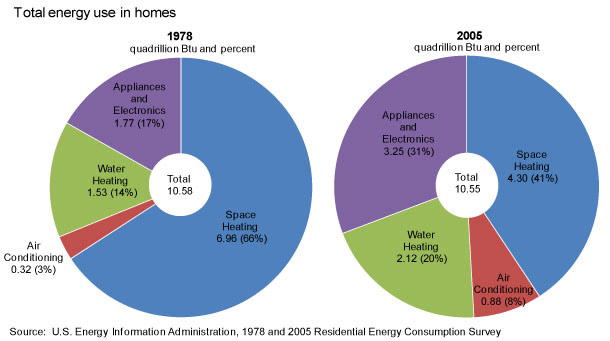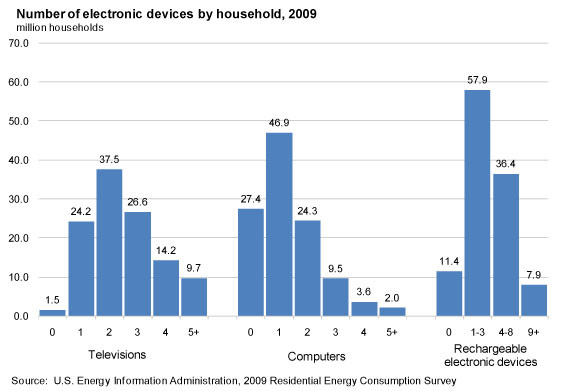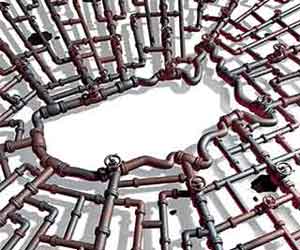
<a href="http://www.flickr.com/photos/mc/">manu contreras</a>/Flickr
It’s a reversal of the old fallacy, “spend more and you’ll save more.” When it comes to household energy use, we’re saving more and then using our savings to buy more stuff. At least that’s one way to interpret the latest figures from the Energy Information Administration’s Residential Energy Consumption Survey.
Since 1978, household appliances have gotten way better. Most notablly, heating used to account for 66 percent of our collective residential energy use. Nowadays, thanks to cleaner-burning furnaces and energy-efficient construction and window design, that number is closer to 40 percent. Not only that, the total energy devoted to heating houses has dropped by 38 percent, even though we have 45 percent more houses to heat. Hey, impressive!
Yeeeeah, but the thing is, we’re now buying so many of these very-efficient appliances that we suck up as much power as we used to. In other words, we’re channeling all that efficiency into better lifestyles. Behold some EIA stats…
- The number of US households grew by 34.5 million from 1978 to 2009
- The share of households with central air conditioning nearly tripled, from 23 percent in 1978 to 61 percent in 2009
- The share of households with clothes washers increased from 74 percent to 82 percent
- The share of households with dishwashers increased from 35 percent to 59 percent
Here’s a chart illustrating the trend. (Being a clunky government agency, the EIA is still using 2005 data, but it’s close enough.)
 Not that I would begrudge anyone a washer. But unless you’ve been living in a Faraday cage for the past decade, you’re aware that rechargable gadgets and big-screen TVs have proliferated as well—and I might actually begrudge you a few of those. The EIA breaks it down…
Not that I would begrudge anyone a washer. But unless you’ve been living in a Faraday cage for the past decade, you’re aware that rechargable gadgets and big-screen TVs have proliferated as well—and I might actually begrudge you a few of those. The EIA breaks it down…
- In 1978, personal computers were expensive and not typically used by US households. In 2009, 76 percent of US homes had at least one computer, eight percentage points more than just four years prior, and 35 percent had multiple computers.
- In 1978, most households had only one television. In 2009, the average household had 2.5 televisions. Over 45 percent of homes have at least one television with a screen size of 37 inches or larger. Screen size and average energy consumption per television have continued to grow over time.
- DVD players and Digital Video Recorders (DVRs), which did not exist 15 years ago, are now widespread. As of 2009, 79 percent of homes had a DVD player, and 43 percent had a DVR. Nearly a third of all households also had at least four electronic devices, such as cell phones, plugged in and charging at home.
Hey, I want five-plus televisions, too! (One for the cat!) Now children, don’t forget to tweet this item from your smartphones as you stream The Social Network via your Wii consoles to your personal Sony wide-screens.











